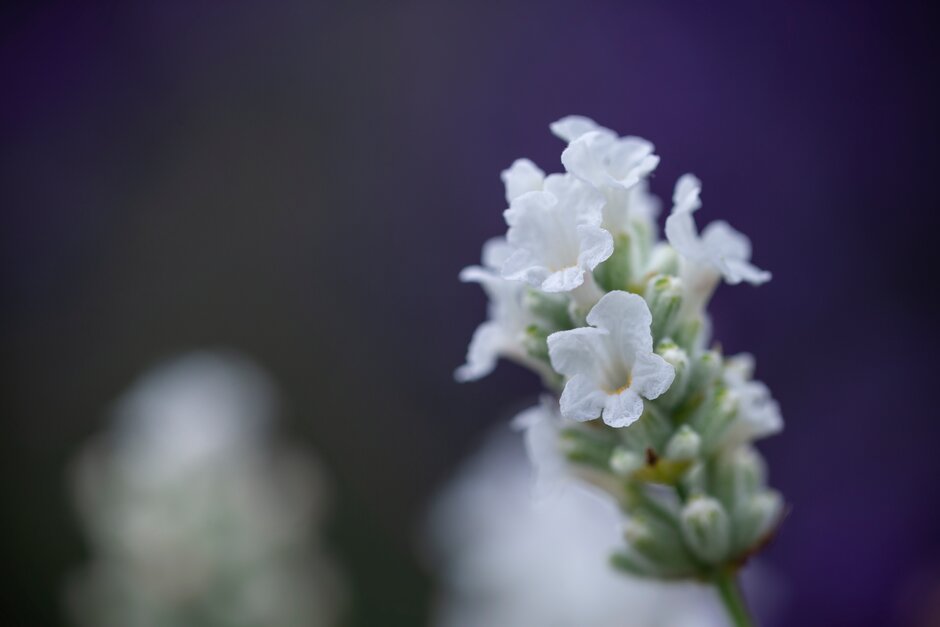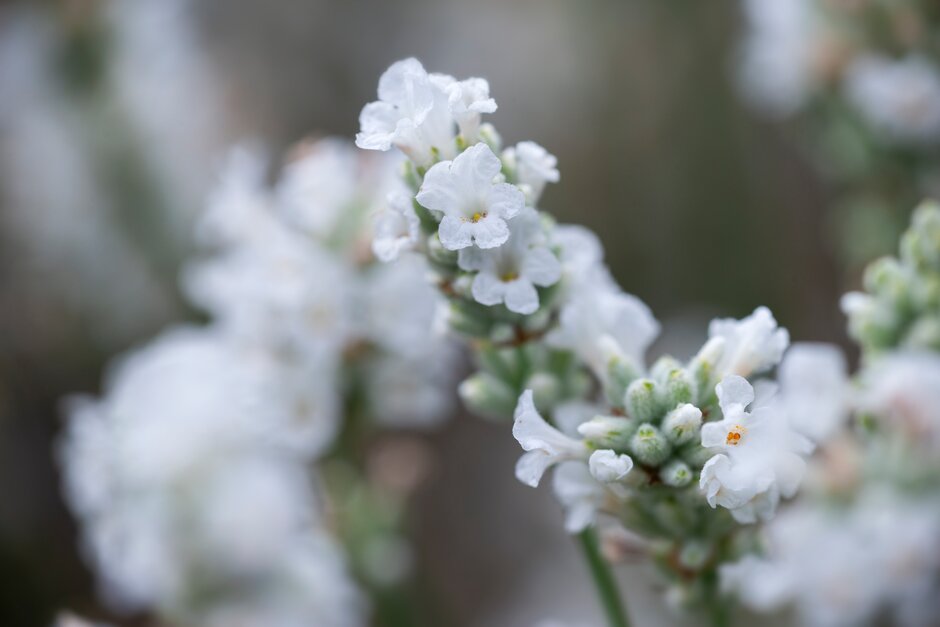Size
Ultimate height
0.1–0.5 metresTime to ultimate height
2–5 yearsUltimate spread
0.1–0.5 metresGrowing conditions
Moisture
Well–drainedpH
Acid, Alkaline, NeutralColour & scent
| Stem | Flower | Foliage | Fruit | |
| Spring | Green Grey Silver | |||
|---|---|---|---|---|
| Summer | White | Green Grey Silver | ||
| Autumn | Green Grey Silver | |||
| Winter | Green Grey Silver |
Position
- Full sun
Aspect
South–facing or East–facing or West–facing
Exposure
ShelteredDrought resistance
Yes Hardiness
H5Botanical details
- Family
- Lamiaceae
- Native to GB / Ireland
- No
- Foliage
- Evergreen
- Habit
- Bushy
- Genus
Lavandula are small aromatic evergreen shrubs with usually narrow, simple, entire, toothed or lobed leaves and small tubular flowers in dense spikes in summer
- Name status
Unresolved
How to grow
Cultivation
Grow in well-drained soil in a sheltered, sunny position. See lavender cultivation for further advice
Propagation
Propagate by semi-hardwood cuttings
Suggested planting locations and garden types
- City and courtyard gardens
- Coastal
- Cottage and informal garden
- Gravel garden
- Rock garden
- Patio and container plants
- Wildlife gardens
- Mediterranean climate plants
- Flower borders and beds
- Banks and slopes
- Garden edging
Pruning
Pruning group 10, after flowering
Pests
May be susceptible to rosemary beetle and cuckoo spit (froghoppers)
Diseases
May be susceptible to grey moulds (Botrytis) and honey fungus (rarely)
Love gardening
Sign up to receive regular gardening tips, inspiration, offers and more
View our Privacy Policy
Get involved
The Royal Horticultural Society is the UK’s leading gardening charity. We aim to enrich everyone’s life through plants, and make the UK a greener and more beautiful place.

